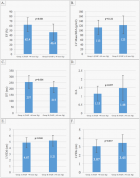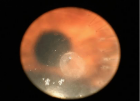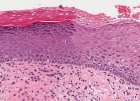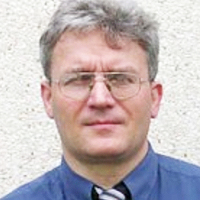Abstract
Research Article
Quantum System Dynamics: Harnessing Constructive Resonance for Technological Advancements, Universal Matter Creation and Exploring the Paradigm of Resonance-induced Gravity
Sanjay Bhushan*
Published: 09 May, 2024 | Volume 7 - Issue 1 | Pages: 053-058
The complex dynamics of constructive resonance are the main topic of this quantum physics study, along with its implications for matter generation, the unification of quantum and classical knowledge, and important technological developments. Space-time is conceptualized in terms of an interwoven fabric in which both linear and non-linear patterns are recorded in an information field. According to this paradigm, basic particle interactions that result in the development of the material universe are referred to as "Constructive Resonance Waves." A five-dimensional cosmos is shaped by the introduction of Cosmic Information (CI), which is essential since it is a basic base vector related to the dimensions of space and time. The Resonance-Induced Information Force Field (RIIFF) and Constructive Resonance are two new theoretical concepts that are introduced in this paper.
Read Full Article HTML DOI: 10.29328/journal.ijpra.1001084 Cite this Article Read Full Article PDF
Keywords:
Constructive resonance; Matter creation; Cosmic information vector; Technological applications
References
- Tsarev M, Thurner JW, Baum P. Nonlinear-optical quantum control of free-electron matter waves. Nature Physics. Advance online publication. 2023. https://doi.org/10.1038/s41567-023-02092-6
- Bhushan S. Universal Matter Synthesis and Management via Constructive Resonance: Pioneering Advancements in Physical Sciences and Applied Systems. International Journal of Fundamental Physical Sciences. 2023; 13(3): 30-40. https://doi.org/10.14331/ijfps.2023.330160
- The Standard Model of Particle Physics. Nature. 2007; 448: 270. https://doi.org/10.1038/nature06073.
- Adam J. Measurement of e+e− momentum and angular distributions from linearly polarized photon collisions. Physical Review Letters. 2021; 127: 052302. https://doi.org/10.1103/PhysRevLett.127.052302
- Mukhanov V, Feldman H, Brandenberger R. Theory of cosmological perturbations. Physics Reports. 1992; 215:203-333. doi:10.1016/0370-1573(92)90044-Z
- Einstein A. Quantum theory of the monatomic ideal gas. Royal Prussian Academy of Sciences. Proceedings. 1924; 261-267. https://web.archive.org/web/20221009123456/https://exampleURL.com/originaldocument.pdf
- Heisenberg W. Multibody problem and resonance in quantum mechanics. Magazine for Physics. 1926; 38(6–7):411-426. https://doi.org/10.1007/BF01397160
- Dirac PAM. On the Theory of Quantum Mechanics. Proceedings of the Royal Society A: Mathematical, Physical and Engineering Sciences. 1926; 112(762): 661–677. https://doi.org/10.1098/rspa.1926.0133
- Yu X, Principi A, Tielrooij KJ, Bonn M, Kavokine N. Electron cooling in graphene enhanced by plasmon–hydron resonance. Nature Nanotechnology. 2023; 18(10):898–904.
- Brodsky SJ, Zerwas PM. High energy photon-photon collisions. Nucl Instrum Meth A. 1995; 1995; 355:19. https://doi.org/10.1016/0168-9002(94)01433-G
- De Broglie L. Waves and Quanta. Nature. 1923; 112:540. https://doi.org/10.1038/112540a0.
- Goldzak T, Gilary I, Moiseyev N. Resonance energies, lifetimes and complex energy potential curves from standard wave-packet calculations. Molecular Physics. 2012; 110(9-10):537-546. https://doi.org/10.1080/00268976.2012.662599
- Bagguley D, Griffiths J. Paramagnetic Resonance and Magnetic Energy Levels in Chrome Alum. Nature. 1947; 160: 532–533. https://doi.org/10.1038/160532b0
- Yang T, Huang L, Xiao C, Chen J, Wang T, Dai D, Lique F, Alexander MH, Sun Z, Zhang DH, Yang X, Neumark DM. Enhanced reactivity of fluorine with para-hydrogen in cold interstellar clouds by resonance-induced quantum tunnelling. Nat Chem. 2019 Aug;11(8):744-749. doi: 10.1038/s41557-019-0280-3. Epub 2019 Jun 24. PMID: 31235895.
- Agaev SS, Azizi K, Sundu H. Vector resonance X1(2900) and its structure. Nuclear Physics A. 2021; 1011: 122202. https://doi.org/10.1016/j.nuclphysa.2021.122202
- Kostyrko M, Vasylkiv Y, Skab I, Vlokh R. Photon–phonon entanglement in the acousto-optic interaction of vector beams. Results in Optics. 2023; 10:100350. https://doi.org/10.1016/j.rio.2023.100350
- Griffiths DJ. Introduction to Electrodynamics (3rd ed.). Prentice Hall. 1998.
- Minami Y, Komatsu E. New Extraction of the Cosmic Birefringence from the Planck 2018 Polarization Data. Physical Review Letters. 2020; 125(22):221301. https://doi.org/10.1103/PhysRevLett.125.221301
- Appleton E. Polarisation of Downcoming Wireless Waves in the Southern Hemisphere. Nature. 1931; 128:1037. https://doi.org/10.1038/1281037a0
- Li JH, Liu ZY, Zhou XZ. The anomalous resonance between low-energy particles and electromagnetic plasma waves. Communications Physics. 2022; 5:300. https://doi.org/10.1038/s42005-022-01083-y
- Wu GB, Dai JY, Shum KM. A universal metasurface antenna to manipulate all fundamental characteristics of electromagnetic waves. Nature Communications. 2023; 14: 5155. https://doi.org/10.1038/s41467-023-40717-9
- Tegmark M. Our Mathematical Universe: My Quest for the Ultimate Nature of Reality. 2014.
- Xing X, Yu Y, Li S, Huang X. How do spin waves pass through a bend? Sci Rep. 2013 Oct 16;3:2958. doi: 10.1038/srep02958. PMID: 24129823; PMCID: PMC3797425.
- Dror JA, Harigaya K, Narayan V. Parametric resonance production of ultralight vector dark matter. Physical Review D. 2019; 99: 035036. https://doi.org/10.1103/PhysRevD.99.035036
- Kitajima N, Takahashi F. Resonant production of dark photons from axion without a large coupling. 2023. https://doi.org/10.48550/arXiv.2303.05492
- Agarwal P, Kitajima N, Reece M, Sekiguchi T, Takahashi F. Relic Abundance of Dark Photon Dark Matter. Journal or Conference Proceedings. 2018. DOI: https://doi.org/10.48550/arXiv.1810.07188
- Koong ZX, Scerri D, Rambach M, Santana TS, Park SI, Song JD, Gauger EM, Gerardot BD. Fundamental Limits to Coherent Photon Generation with Solid-State Atomlike Transitions. Physical Review Letters. 2019; 123(16):167402
- Einstein A. The Field Equations of Gravitation. Proceedings of the Royal Prussian Academy of Sciences. 1915(1): 844-847.
Figures:
Similar Articles
-
Synthesis of Carbon Nano Fiber from Organic Waste and Activation of its Surface AreaHimanshu Narayan*,Brijesh Gaud,Amrita Singh,Sandesh Jaybhaye. Synthesis of Carbon Nano Fiber from Organic Waste and Activation of its Surface Area. . 2019 doi: 10.29328/journal.ijpra.1001017; 2: 056-059
-
Quantum System Dynamics: Harnessing Constructive Resonance for Technological Advancements, Universal Matter Creation and Exploring the Paradigm of Resonance-induced GravitySanjay Bhushan*. Quantum System Dynamics: Harnessing Constructive Resonance for Technological Advancements, Universal Matter Creation and Exploring the Paradigm of Resonance-induced Gravity. . 2024 doi: 10.29328/journal.ijpra.1001084; 7: 053-058
-
Various Theories of Fast and Ultrafast Magnetization DynamicsManfred Fähnle*. Various Theories of Fast and Ultrafast Magnetization Dynamics. . 2024 doi: 10.29328/journal.ijpra.1001101; 7: 154-158
Recently Viewed
-
Overview on liquid chromatography and its greener chemistry applicationAdel E Ibrahim,Magda Elhenawee,Hanaa Saleh,Mahmoud M Sebaiy*. Overview on liquid chromatography and its greener chemistry application. Ann Adv Chem. 2021: doi: 10.29328/journal.aac.1001023; 5: 004-012
-
COPD and low plasma vitamin D levels: Correlation or causality?Luca Gallelli*, Erika Cione,Stefania Zampogna, Gino Scalone. COPD and low plasma vitamin D levels: Correlation or causality? . J Pulmonol Respir Res. 2018: doi: 10.29328/journal.jprr.1001008; 2: 011-012
-
Environmental Factors Affecting the Concentration of DNA in Blood and Saliva Stains: A ReviewDivya Khorwal*, GK Mathur, Umema Ahmed, SS Daga. Environmental Factors Affecting the Concentration of DNA in Blood and Saliva Stains: A Review. J Forensic Sci Res. 2024: doi: 10.29328/journal.jfsr.1001057; 8: 009-015
-
Markov Chains of Molecular Processes of Biochemical MaterialsOrchidea Maria Lecian*. Markov Chains of Molecular Processes of Biochemical Materials. Int J Phys Res Appl. 2024: doi: 10.29328/journal.ijpra.1001076; 7: 001-005
-
Generation of Curved Spacetime in Quantum FieldSarfraj Khan*. Generation of Curved Spacetime in Quantum Field. Int J Phys Res Appl. 2024: doi: 10.29328/journal.ijpra.1001077; 7: 006-009
Most Viewed
-
Evaluation of Biostimulants Based on Recovered Protein Hydrolysates from Animal By-products as Plant Growth EnhancersH Pérez-Aguilar*, M Lacruz-Asaro, F Arán-Ais. Evaluation of Biostimulants Based on Recovered Protein Hydrolysates from Animal By-products as Plant Growth Enhancers. J Plant Sci Phytopathol. 2023 doi: 10.29328/journal.jpsp.1001104; 7: 042-047
-
Sinonasal Myxoma Extending into the Orbit in a 4-Year Old: A Case PresentationJulian A Purrinos*, Ramzi Younis. Sinonasal Myxoma Extending into the Orbit in a 4-Year Old: A Case Presentation. Arch Case Rep. 2024 doi: 10.29328/journal.acr.1001099; 8: 075-077
-
Feasibility study of magnetic sensing for detecting single-neuron action potentialsDenis Tonini,Kai Wu,Renata Saha,Jian-Ping Wang*. Feasibility study of magnetic sensing for detecting single-neuron action potentials. Ann Biomed Sci Eng. 2022 doi: 10.29328/journal.abse.1001018; 6: 019-029
-
Pediatric Dysgerminoma: Unveiling a Rare Ovarian TumorFaten Limaiem*, Khalil Saffar, Ahmed Halouani. Pediatric Dysgerminoma: Unveiling a Rare Ovarian Tumor. Arch Case Rep. 2024 doi: 10.29328/journal.acr.1001087; 8: 010-013
-
Physical activity can change the physiological and psychological circumstances during COVID-19 pandemic: A narrative reviewKhashayar Maroufi*. Physical activity can change the physiological and psychological circumstances during COVID-19 pandemic: A narrative review. J Sports Med Ther. 2021 doi: 10.29328/journal.jsmt.1001051; 6: 001-007

HSPI: We're glad you're here. Please click "create a new Query" if you are a new visitor to our website and need further information from us.
If you are already a member of our network and need to keep track of any developments regarding a question you have already submitted, click "take me to my Query."


















































































































































